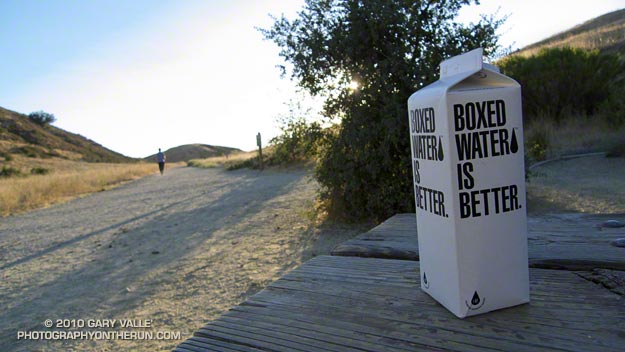
…Or maybe tap water in a reusable container?
Here’s more info about Boxed Water is Better.
From today’s run at Ahmanson Ranch.

…Or maybe tap water in a reusable container?
Here’s more info about Boxed Water is Better.
From today’s run at Ahmanson Ranch.
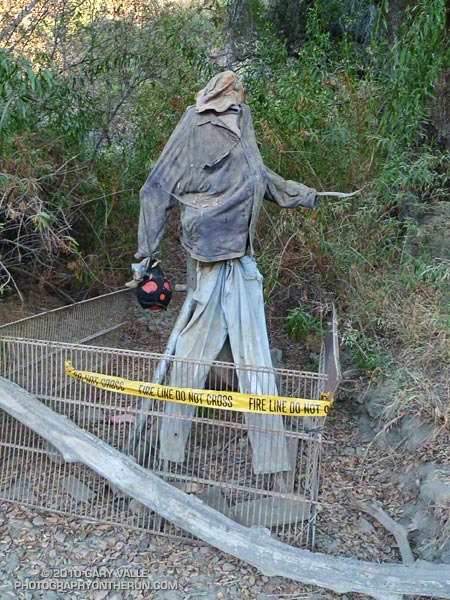
Las Llajas Canyon is a quirky place with a colorful history that includes oil production, grit mining, cattle ranching, and land development.
Coach Las Llajas has been keeping an eye on things in the canyon for a few months now. I didn’t check, but rumor has it he’s wearing a New Basin Blues t-shirt.
Some related posts: Chumash-Las Llajas Loop, Las Llajas Longhorns, Exploring Las Llajas
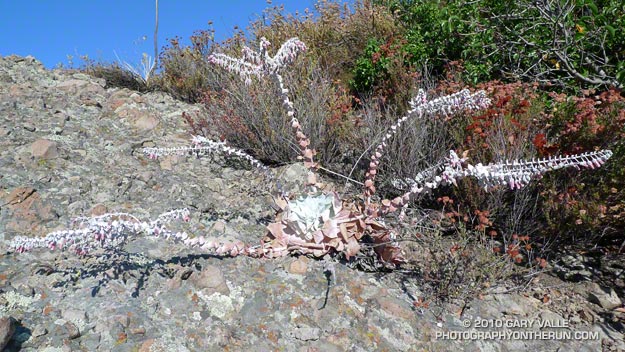
It was eerily quiet high on the mountain. No birds chattered in the chaparral, and it was so still the mountain seemed to be holding its breath. Sometimes in cloud and sometimes in sun I made my way along the rocky ridge. Was I on the correct route? In the thick brush and towering rocks it was hard to tell.
Descending along a narrow, rubble strewn path, I stopped at the base of a rocky outcrop. An odd plant was growing on the steeply inclined face, and I climbed up to take a closer look.
The plant looked as if it belonged in the Triassic. Long tentacle-like stalks radiated menacingly from a central spiral of pointed, wedge shaped leaves. The outer leaves of the rosette were wilted and rusty, and the entire plant had the chalky appearance of something that was part alive, and part dead.
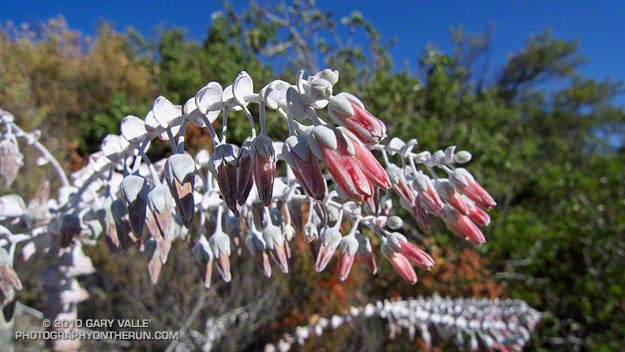
I couldn’t quite see the structure of the flowers and leaned closer to take a photo. Suddenly…
This is the point in the story where the plant should grab me, or release a puff of toxic dust from its flowers, or do something equally malevolent. Not this time. But I can’t think of a more bizarre looking plant than a chalk liveforever on a rocky outcrop in full bloom.
From Sunday’s Clouds & Crags trail run.
Some related posts: Chalk Liveforever, Canyon Liveforever
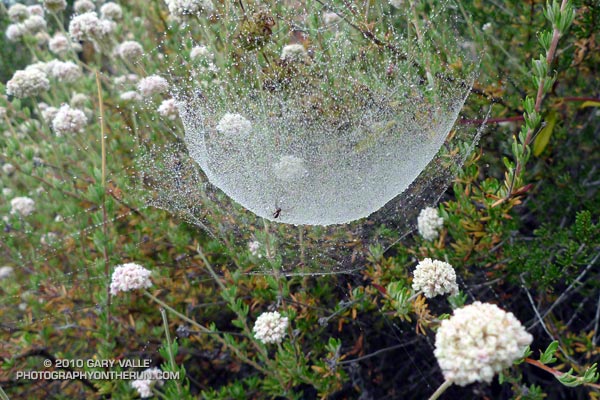
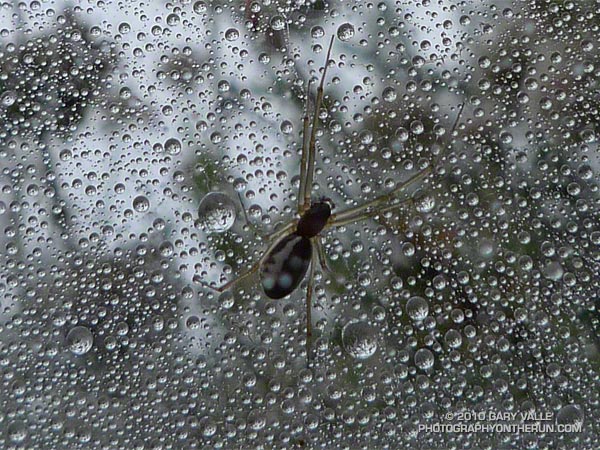
An unusual spider web, and the spider that made it.
Also from Sunday’s out and back run to Saddle Peak.
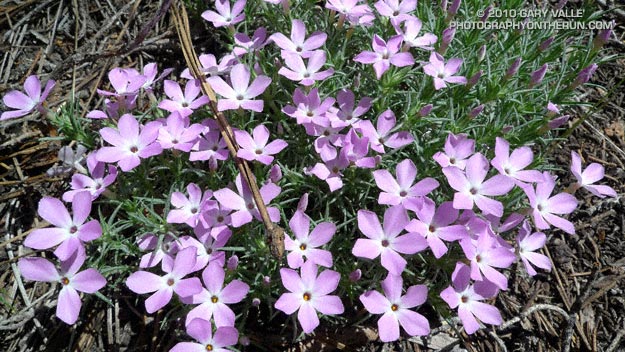
Notice anything peculiar about the Mountain Phlox (Phlox austromontana) in this photo?
Usually 5-lobed, several of the blossoms here have six lobes.
These are along the Cougar Crest Trail, near Big Bear Lake. The photo is from a couple of weeks ago, the day before doing the Holcomb Valley 33 mile Trail Run.
The Havasupai reportedly use a preparation made from the plant (externally) for body aches.
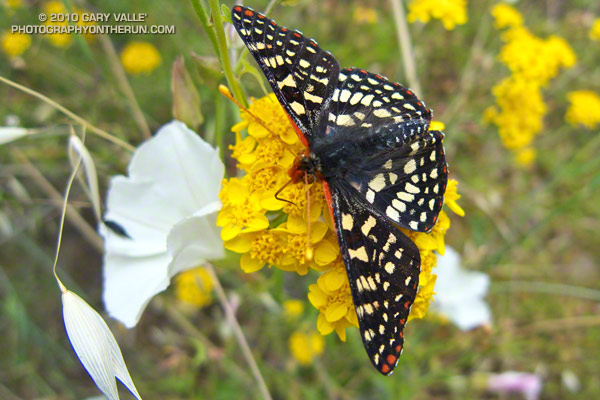
I found this and several other variable checkerspots (Euphydryas chalcedona) flittering about and feeding on golden yarrow along the Garapito Trail, on a recent run in the Santa Monica Mountains.
A closer look revealed an outlandish creature with black-spotted orange ladybug eyes, a bright orange spiked hairstyle, and a substantial spiraled trunk.
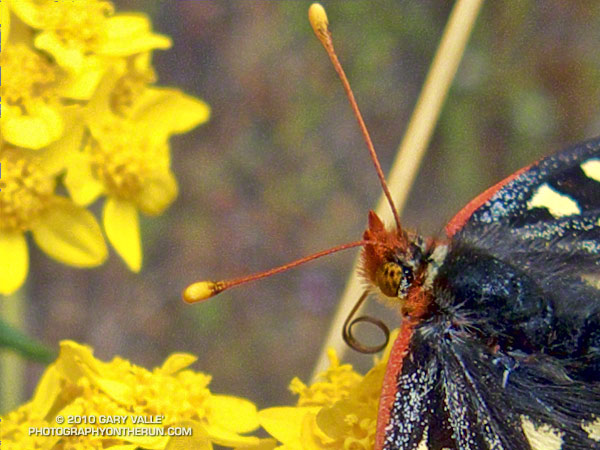
The “hair spikes” are part of the butterfly’s sophisticated scent sensing system. They are probably used in combination with the antennae to provide a three dimensional olfactory picture of the butterfly’s surroundings. This would help guide the butterfly to food or potential mates.
Butterflies are masters of low speed flight, and exploit several unusual mechanisms to generate aerodynamic lift. They are also opportunistic, and will take advantage of thermals and variations in the windfield to move from one place to another.
Several times when I’ve encountered a butterfly on a run, it has flown along with me for a surprising distance. I know that butterflies can be attracted by color, that’s happened in my bright yellow kayak. But in this case I don’t think it’s color or coincidence. It seems to me the butterfly is surfing the wave of air pushed around me as I run, similar to the way a porpoise surfs the bow wave of boat.
Related posts: Sylvan Hairstreak, Western Tiger Swallowtail